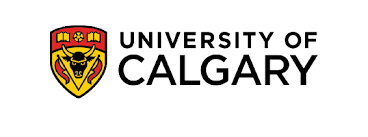University of Calgary’s Kathleen Sitter Receives Prestigious Killam Fellowship for Multisensory Storytelling
Imagine a place where research and narratives unfold not just through sight and text, but through mapping the other senses, as well. This is the captivating realm of multisensory storytelling.
An advocator and expert in this innovative approach, Dr. Kathleen Sitter, MCS’02, MSW’08, PhD’12, has earned the prestigious Dorothy Killam Fellowship for her visionary research, a significant milestone in an already distinguished career.
Sitter, an associate professor in the Faculty of Social Work at the University of Calgary since 2019, is a trailblazer in the field. With a background spanning disability, mental health, human rights and health care, Sitter’s innovative approach is evident in the creation of her Multisensory Research Studio, which centralizes sensory methodologies such as tactile maps as ways to understand histories and ways of knowing.
Multisensory storytelling
Multisensory storytelling integrates various sensory experiences such as sight, sound, feel, taste, smell, movement and body awareness into the narrative process, offering a richer and more-inclusive understanding of human experiences.

Sitter’s 4D installation at UCalgary’s Hunter Hub Collision Space in April 2023.
Dr. Kathleen Sitter
Guided by an overarching question of how multisensory storytelling can enhance inclusivity in the Canadian context, Sitter’s research program integrates collaborative sensory methodologies, inclusive design, research intervention and knowledge translation to address objectives aimed at breaking down barriers and promoting equity.
“Historically, disabled voices have been excluded from decision-making that impacts their lives,” says Sitter. “Most social science research prioritizes speaking and writing methods in understanding lived experiences, and this can create participation barriers for many people.”
Project aims to promote more inclusivity for disabled voices
Dorothy Killam, a visionary philanthropist, aimed to build Canada’s future through advanced study. Her enduring legacy lives on through the Dorothy Killam Fellowships, which support leading researchers whose work demonstrates a commitment to building Canada’s future and reflects key Killam attributes such as inclusivity, breaking barriers and research leadership.
“This prestigious award recognizes Dr. Sitter’s steadfast commitment to inclusive research.” says Dr. William Ghali, vice-president (research) at UCalgary. “Scholars like Dr. Sitter foster equity, diversity and inclusion on our campus and in our communities. Her work is a shining example of how working alongside the communities we serve creates transformational impact in our society.”
Aligning with these attributes is Sitter’s project, Disability Histories, Soundscapes, and Smellwalks: Putting Our Stories on the Map. By leveraging multisensory storytelling techniques, Sitter’s research promises to shed light on historically marginalized narratives, offering new insights into Canadian histories and promoting inclusivity within academic discourse.
Centralizing marginalized voices
In addition to its academic and societal impact, Sitter’s research also has personal significance for the individuals involved. By providing a platform for disabled individuals to share their stories and reclaim their narratives, Sitter’s work fosters a sense of empowerment and agency. Through her collaborative approach, participants provide first-person accounts, contributing to a richer and more-diverse understanding of important Canadian histories that centres disabled voices in Canadian culture.
“We will be collaborating with disabled adults across Canada to identify significant moments in history,” Sitter says. “For instance, social celebrations such as disability pride events. We connect these stories to locations and explore them through soundscapes and smellwalks using mapping and visualization software to co-create a rich tapestry of storytelling. What we hope to develop is a sensory form of storytelling about the Canadian landscape that will be recorded and shared by disability communities.”
Smellwalks involve a shift in sensory focus, prioritizing the perception of scents for a temporary period. Using this method, researchers actively engage in smelling to explore their surroundings, diverging from conventional olfactory perception.
At the heart of Sitter’s research lies a commitment to amplifying marginalized voices and fostering greater understanding of peoples’ experiences, exploring them through creative sensory methods, delving into stories that would otherwise be hidden.
Fellowship a catalyst for project goals
The Fellowship serves as a catalyst for Sitter’s research goals, providing the financial support and resources necessary to not only complete her research, but to also ensure the research can be shared in accessible ways.
“It’s an honour to become a Dorothy Killam Fellow,” Sitter says. “The program’s underlying values — research excellence, innovation, humanity and multidisciplinary collaboration — align with my commitment to exploring new possibilities of social science research while supporting the empowerment of marginalized communities. I’m humbled to be able to contribute to the distinguished body of work of more than 50 years of Killam Laureates.”

